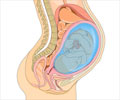FAQs on Hydrops Fetalis: Causes, Symptoms, and Treatment
1. Can hydrops fetalis be detected in early pregnancy?Yes, hydrops fetalis can sometimes be detected as early as the first trimester through routine ultrasounds, though it is more commonly identified in later stages of pregnancy.
2. What are the risk factors for developing hydrops fetalis?
Risk factors include maternal infections, chromosomal abnormalities, genetic conditions, and pre-existing health conditions such as
3. Are there any preventive measures for hydrops fetalis?
While not all cases can be prevented, managing maternal health conditions, receiving appropriate prenatal care, and screening for infections can help reduce the risk.
4. How often should follow-up ultrasounds be done if hydrops fetalis is suspected?
Follow-up ultrasounds are typically done every few weeks to monitor the progression of the condition and assess the effectiveness of any interventions.
5. What are the long-term outcomes for babies who survive hydrops fetalis?
Long-term outcomes vary widely and depend on the underlying cause of the hydrops. Some infants may experience ongoing health issues, while others may have a normal development with appropriate care.
6. Can hydrops fetalis affect future pregnancies?
It can, especially if the underlying cause is related to genetic or immune issues. Consultation with a genetic counselor or specialist may be recommended for future pregnancy planning.
7. What are the chances of recurrence of hydrops fetalis in subsequent pregnancies?
The recurrence risk depends on the underlying cause. For genetic conditions, there may be a higher chance of recurrence, while for other causes, the risk might be lower.
8. Are there any support groups for parents dealing with hydrops fetalis?
Yes, there are several support groups and organizations that offer resources, counseling, and community support for families affected by hydrops fetalis.
9. What advancements are being made in the treatment of hydrops fetalis?
Research is ongoing in areas such as in-utero treatments, improved diagnostic techniques, and better supportive care options to enhance outcomes for affected infants.
10. How does hydrops fetalis affect the delivery process?
The delivery process may be affected by hydrops fetalis, as the condition can lead to complications such as preterm labor or the need for specialized delivery planning to address the baby's needs.









